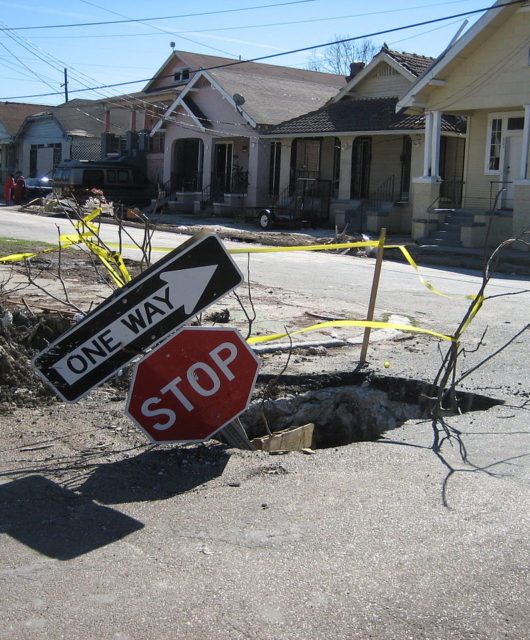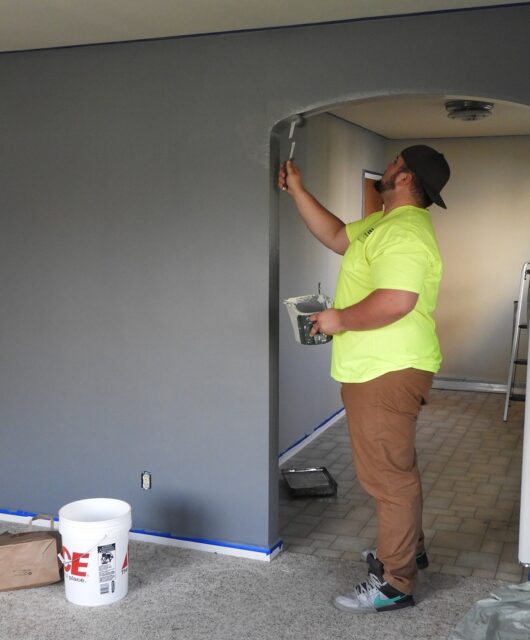How to Thrive in Real Estate During a Recession
 Real estate is one of the things that everyone thinks about as they go through life. People think about where they want to live and what kind of space is going to work best for them. They also think about the kind of home that is good for their work situation and other issues in life such as raising children and caring for an elderly relative. Some people may dream about a lovely apartment in the middle of a city. Others may want to head for the suburbs to find a large house with lots of room for guests and plenty of places to create a garden full of their favorite wildflowers. One of the factors that influences everyone when it comes to real estate is the state of the economy.
Real estate is one of the things that everyone thinks about as they go through life. People think about where they want to live and what kind of space is going to work best for them. They also think about the kind of home that is good for their work situation and other issues in life such as raising children and caring for an elderly relative. Some people may dream about a lovely apartment in the middle of a city. Others may want to head for the suburbs to find a large house with lots of room for guests and plenty of places to create a garden full of their favorite wildflowers. One of the factors that influences everyone when it comes to real estate is the state of the economy.
Economic Trends
The economy plays a huge role in how people live their lives. In boom times, people are tempted to spend more money. This applies to the kind of housing they wish to live in. When a recession hits, it hits all areas of the economy. During this time, people may face all sorts of hurdles. Someone may face the loss of hours at work or even the loss of a job entirely. A recession can feel like a bleak dark space with no way out. Yet, even in the middle of a serious economic crisis, there are opportunities. It’s all in where you look. If you are thinking about real estate in the midst of a recession, you might be surprised at the kind of opportunities that are open to you.
One thing to bear in mind is that some parts of the United States have much more expensive overall costs. This includes the price of housing. Big cities like Los Angeles may have lots of amusements and lots of places to further burnish your academic credentials but they also come with a heavy price. In general, housing costs in these cities are far higher than housing costs in other parts of the country. A single family home or an apartment may be double or even triple the price of similar housing elsewhere. Under those circumstances, it is not surprising that people may think about alternatives during a recession. They may find it hard to pay the costs of housing as the recession continues. Moving somewhere else immediately comes to mind. Doing so has certain advantages.
Moving Somewhere Else
For those who have put down roots in a more expensive place, chances are they have been able to develop equity in their properties. This kind of equity can be tapped into during a recession. That equity can be further used to help fund a move to a new place with lowered housing costs. Real estate inevitably goes up over time. Even in a recession, it is possible to see real estate gains. For many people, now is the time to think about a move to a place that lets them keep the home they want and remain in control of their overall housing costs. Places like Arizona offer many benefits. These are areas with lower housing costs and a generally lower cost of living. That makes it easy for people to afford living there. It also makes it easy for people to get spacious housing that allows them to do everything they want to get done in life.
Arizona is a particularly important real estate market when it comes to the housing market. This large state has drawn a large crowd of happy people in the last few decades. As a result, Arizona has a thriving housing market. Housing here is of good stock and often well maintained. It is also housing that allows for an easy commute. Buyers can often get the exact kind of housing they want under terms that are favorable to them even in the middle of economic contraction. Those who have already made the move to Arizona can use a recession to increase their overall wealth and even thrive even if the rest of the country is mired in an economic slump.
A Seller’s Market
Many parts of Arizona are in what is known as a seller’s market. A seller’s market means that the market is favorable to the seller. As such, existing property owners find they can call the shots when it comes to housing. It also means that housing costs are often going up. When housing costs go up, the amount of equity the homeowner has also increases. Housing equity is a very useful thing to have on hand. It means that the homeowner has economic assets. It also means that the homeowner can take those assets and do other things with them. A recession offers a great time to take that equity out and use it to help improve your economic situation.
For example, when a recession hits, people may be unable to hold on to their existing homes. In that case, people tend to turn to renting. Many people may also put off buying a home because of existing economic uncertainties. That means they are looking for properties to rent. The savvy homeowner can take this as a chance to invest in rental properties in their area. A brand new rental home can offer a chance to generate ongoing capital returns. This can be safer than investing in a market that is volatile and unclear where stocks and bonds are headed. Buying a second home for investment purposes is a good way to add to your capital. It’s also an investment that offers endless chances to determine how to use it on your own terms.
Someone might choose to have tenants on a month to month basis. That allows them the freedom to work with tenants who are only there for a short term. Another option is choosing to offer single rooms for rent. This allows the homeowner to make more money per room over time. Each option is a good one for those who want to thrive in a recession.
Away From Dense Populations
Certain parts of the country such as Ohio and Oklahoma are far less populated. These areas tend to have relatively low economic housing values. That means that people can buy homes for much less money than in other parts of the United States. While these areas may be initially affected by a recession, in the long run they are likely to do really well once the recession is over. This is due to several fundamental factors. These are areas that have lots of space for people to enjoy. Vast spaces can be found indoors and outdoors. For those who cherish both of those prospects, such areas make a really good home base.
As people realize the many disadvantages of living in very heavily populated places like Los Angeles, they are likely to leave them for other places. Once the recession is over, it is likely they will continue to remain in places with lower overall housing costs. That makes it likely that, even if the housing markets in such areas suffer temporary setbacks, they are likely to rebound once the recession is over. In doing, this will lead to an increase in property values. That is why it can make a lot of sense to consider many areas when it comes to responding to a national recession. Less populated areas have much to offer any investor as well as anyone who wants to invest in real estate.









